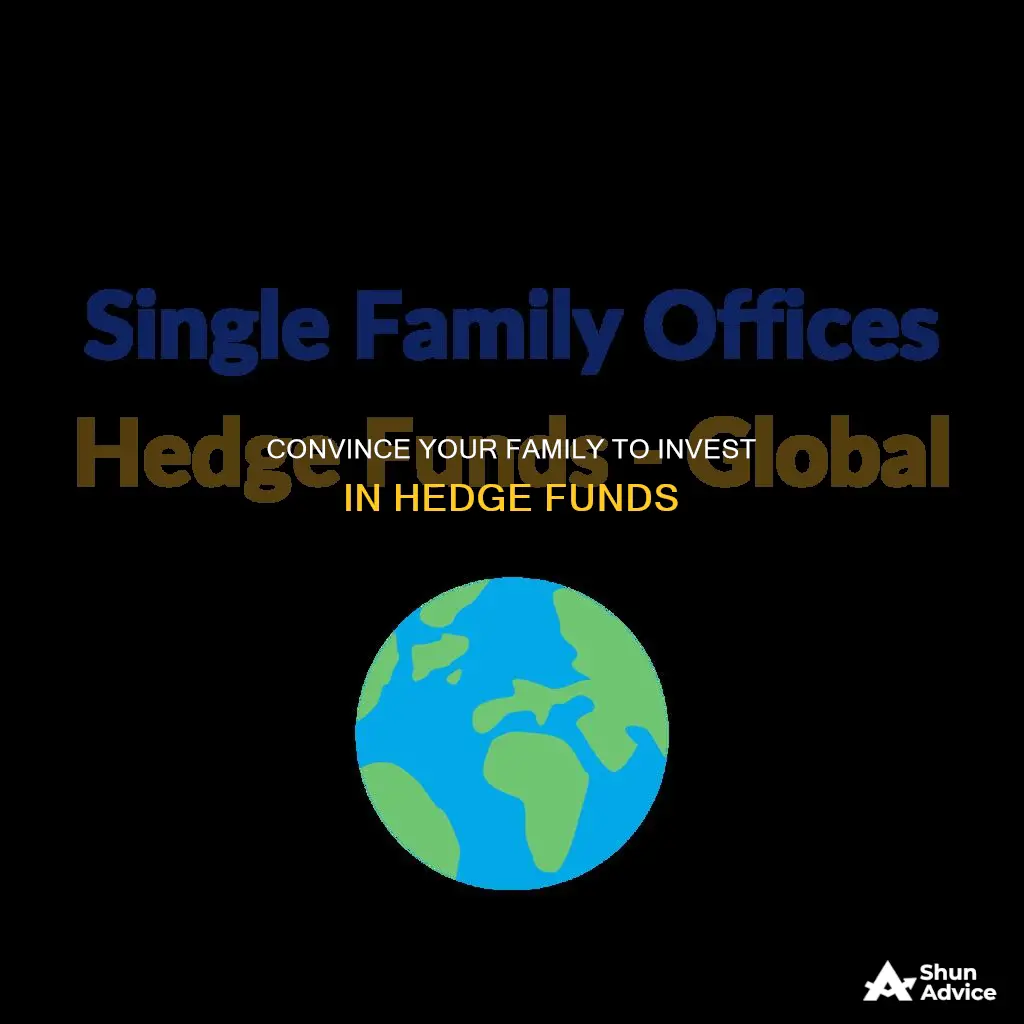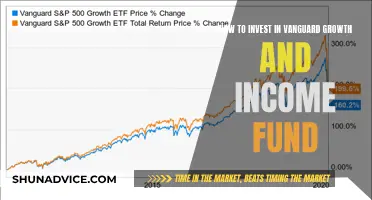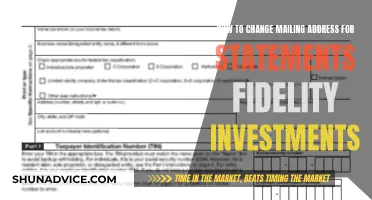
Hedge funds are a risky investment option, often employing aggressive investment strategies. They are also highly exclusive, with government restrictions and high buy-ins, making them inaccessible to most. For those who are considering investing in hedge funds, it is important to note that they have historically underperformed stock market indices.
If you are thinking of starting a hedge fund for your family, it is important to note that it is a challenging and expensive process, requiring compliance with various investment laws and regulations. You will need a clear, replicable, and scalable investment strategy, a competent team, and effective marketing. Additionally, you will need to register with the necessary parties, such as the Securities and Exchange Commission (SEC) and state regulatory bodies.
It is also crucial to have a significant amount of capital to manage, as potential investors will want to see a substantial amount of assets under management before investing their money. This process can be time-consuming and costly, and you may encounter numerous regulatory and legal hurdles.
| Characteristics | Values |
|---|---|
| Investment strategy | Clear, repeatable, and scalable. Not reliant on specific economic conditions or government policies. |
| Investment agreement | Includes fee structure, minimum commitment, and distribution terms. |
| Team | Lawyer, broker, auditor, administrator, and marketer. |
| Investors | Accredited investors with a liquid net worth of $1 million or an annual income of $200,000 ($300,000 if married). |
| Marketing | Informational websites, trading ideas, pitch books or tear sheets, and networking. |
What You'll Learn

Raising capital
The next step is to find and convince some initial investors of your ability to manage the fund profitably. These initial investors are often friends, family, or business acquaintances. In exchange for a substantial investment, you may offer a discount on fund management fees or a partial ownership interest in the fund. These initial investors often do their own networking to solicit other investors.
Once you have established an initial track record, you can begin to attract the attention of large institutional investors such as endowments and pension funds. These investors typically require a substantial amount of capital, excellent returns on investment, and a unique or appealing investment strategy.
It's important to note that hedge fund managers cannot advertise their fund to the public to raise capital. Instead, they rely on networking, informational websites, and offering specific trading ideas on investment websites.
When approaching potential investors, it's crucial to have a refined pitch that showcases your process, story, and investment strategy. Your pitch should be specific, repeatable, and understandable, as institutional investors often place significant weight on these factors and your character.
The capital-raising process can be lengthy and bureaucratic, especially when dealing with large institutional investors. It involves introductions, phone interviews, informal background checks, and in-person pitch days. Be prepared to present your past investments, investment ideas, and risk management strategies.
Remember that the success rate of investor meetings is very low unless you have a strong reputation and track record. You may need to contact hundreds of potential investors before seeing success. Additionally, endowments and pension funds are generally conservative and avoid brand-new funds.
To increase your chances of success, focus on smaller family offices and high-net-worth individuals, as the process tends to be quicker and less bureaucratic. However, it will take more meetings and individual investors to reach a critical mass of capital.
Vanguard Funds: Best Investment Options for Your Portfolio
You may want to see also

Setting up the paperwork and legal structure
Choose a Location
The location of your hedge fund will determine the specific legal requirements and regulations that you will need to comply with. In the United States, Delaware is a popular choice for incorporation due to its business-friendly laws. However, other states have introduced similar provisions to compete with Delaware. It is important to research the regulations and tax implications of different locations before making a decision.
Form Business Entities
Two business entities typically need to be formed: one for the hedge fund itself and another for the hedge fund's investment manager. The hedge fund can be set up as either a limited partnership (LP) or a limited liability corporation (LLC). The investment manager can choose any business structure that meets their needs. In most cases, the hedge fund is the primary partner, and the investment manager acts as the secondary partner.
Obtain an Employer Identification Number (EIN)
Apply for an EIN from the Internal Revenue Service (IRS). This can be done for free through the IRS website or by filling out IRS Form SS-4.
Complete Legal Paperwork
Work with your attorney to draft the necessary legal documents, which may include:
- Articles of Incorporation
- Corporate Bylaws (including a mission statement, compliance manual, code of conduct, supervisory procedures manual, and advisor portfolio management agreement)
- Private Placement Memorandum
- Limited Partnership Agreement or Operating Agreement
- Subscription Documents
- Management Agreement (if there are multiple managing principals)
- Marketing materials ("pitch book" and "tear sheet")
Register as an Investment Adviser
Register your company as an investment adviser by visiting the Investment Adviser Registration Depository (IARD) website. This process is free and can be completed online.
Register Representatives as Investment Advisers
If your hedge fund will have representatives, they will need to register as investment advisers with the U.S. Securities and Exchange Commission (SEC). They can do so through the IARD website and may also need to check with the secretary of state in the state of incorporation for additional information. Representatives will need to pass the Financial Industry Regulatory Authority (FINRA) Series 65 regulatory exam to become licensed investment advisers.
Register the Hedge Fund Offering with the SEC
Complete SEC Form D in each state where the hedge fund will be offered. This form will include information about the key partners, large investors, and the fund's investment strategy and approach.
Comply with Consumer Protection Provisions
Hedge fund managers are subject to registration and reporting requirements under the Dodd-Frank Wall Street Reform and Consumer Protection Act of 2010. If the manager has less than $25 million in assets under management, they are not eligible for SEC registration and must follow the laws of their home state for registration and licensing.
Advisers registered in their home state can avoid SEC registration until they reach $100 million in assets under management. At this point, they will need to complete Form ADV, providing information about the adviser's owners, business activities, private funds managed, and disciplinary information.
If the manager registers with the SEC and has at least $150 million in private fund assets under management, they will also need to complete SEC Form PF, which requires a filing fee.
Choose Service Providers
Hire service providers such as lawyers, auditors, administrators, marketers, prime brokers, and compliance officers. It is important to select high-quality providers, as potential investors will judge your fund based on the quality of these providers.
Understand Costs
Be prepared for significant costs, including legal fees, office space, and salaries for key personnel such as the chief operating officer (COO). The startup costs for a standard equity fund can reach approximately one million dollars in the first year, while more complex funds can cost around two million dollars.
Hedge Fund Managers: Where to Find Their Investment Theses
You may want to see also

Hiring a team
Even with external service providers, you won't be able to do everything yourself. We label this "Part 3", but you'll have to build your team from the start because you'll get questions about it in your pitches. And you don't even stand a chance of starting a fund unless you have an existing team that has worked together for years.
First, note that $100 million in assets under management (AUM) is barely enough to support a "team": you might earn $1.0–$1.5 million in management fees from that, and infrastructure, overhead, and compliance expenses will eat up a good portion of those fees. You might have a few investment professionals at that level, a few support staff, and many outsourced service providers.
Once you move closer to $1 billion in AUM, you might hire several more investment professionals, a few more support staff, and even more outsourced services. Quant funds have more IT needs and tend to have bigger teams, but many value-oriented funds start with just the founder, one person on the investing side, and someone else in support.
If you only have the funds to hire one person, make it someone on the administrative/operational/marketing side. That may sound crazy, but you will spend an unbelievable amount of time on non-investment-related tasks, such as talking to lawyers and accountants, reviewing legal documents, and answering questions from potential investors. Without someone else to handle these tasks, you might spend 50% or more of your time on them, which limits your ability to create and implement investment strategies.
But let's say that you have grown your AUM, and now you can afford to hire more full-timers and interns. You might be tempted to ask candidates to complete case studies, stock pitches, or other modelling/technical tests… But at a startup hedge fund, that's the wrong approach. Yes, investment staff need to understand all of that, but the most important quality is that they must be willing to get any task done no matter how random or ridiculous it is.
Having a degree from Harvard or Oxford or 3 years of experience at Goldman Sachs are extremely poor indicators of this quality – in fact, they're often negative indicators! Your best bet is to tap your network and reach out to co-workers from previous jobs, and if you need to go beyond that, start asking those co-workers for referrals.
As your fund grows beyond the "startup" phase, the hiring process will become more traditional, with decisions based more heavily on discussions of investment ideas. As your AUM grows, your headcount won't necessarily grow linearly with it, especially if you're running a quant fund; there are multi-billion-dollar funds with only a few investment staff. Your headcount is more likely to scale up linearly if you're running a value-oriented fund that requires more people for research and due diligence.
As you grow, the non-investment headcount might increase more rapidly because your compliance and reporting requirements will increase – but you won't necessarily need to come up with more investment ideas. Many large hedge funds have a 1:1 ratio of investment personnel to non-investment personnel, and sometimes it's closer to 1:2.
Contingency Fund Investment: Where to Place Your Safety Net?
You may want to see also

Marketing to family members
Marketing a hedge fund to family members requires a nuanced approach that balances the personal nature of the relationship with a professional presentation of your fund's strengths and potential benefits. Here are some key considerations for effectively marketing a hedge fund to your family members:
Understand the Risks and Regulatory Landscape:
Before approaching family members, ensure you have a comprehensive understanding of the risks associated with hedge funds. Hedge funds employ aggressive investment strategies and often invest in less liquid assets, making them riskier than mutual funds or ETFs. Be transparent about these risks and ensure your family members comprehend the potential downsides. Additionally, be mindful of regulatory requirements, such as the need for investors to be accredited, as defined by the U.S. Securities and Exchange Commission (SEC).
Tailor Your Pitch:
Recognize that marketing to family members is different from pitching institutional investors. While institutional investors focus primarily on quantitative metrics, family members may be more interested in your story, process, and character. Craft a narrative that highlights your expertise, investment strategy, and ability to manage risk effectively. Emphasize specific, repeatable, and understandable strategies that showcase your ability to generate consistent returns.
Demonstrate Strong Track Record:
Family members will likely want to see a proven track record of successful investments. Provide detailed examples of your past investments, including the idea behind the investment, your decision-making process, and the outcome. Be honest and include both your successes and failures to build trust. If possible, showcase a team with a solid track record and years of experience working together.
Address "Skin in the Game":
Family members may want to know if you have personal capital invested in the fund. Institutional investors often prefer fund managers and employees to have "skin in the game," and family members may share this sentiment. Demonstrating your own financial commitment to the fund can build credibility and trust.
Provide Clear Investment Information:
Ensure you can provide detailed information about the fund's investment strategy, risk management approach, and expected returns. Be transparent about fees, lock-up periods, and redemption terms. Family members will want to understand the potential risks and rewards, as well as the liquidity of their investment.
Handle Objections Sensitively:
Be prepared to address any concerns or objections family members may have. Remember that you are not just pitching an investment opportunity but also navigating potentially sensitive family dynamics. Listen attentively, address their questions and worries, and provide reassurance where possible.
Emphasize Long-Term Relationship:
Highlight the fact that you are approaching them not just as potential investors but also as valued family members. Emphasize the long-term nature of your relationship and your commitment to their financial well-being. This can help build trust and differentiate your pitch from a typical investor presentation.
Provide Ongoing Support:
After your family members have invested, maintain open lines of communication. Provide regular updates, be responsive to their queries, and offer support as needed. Remember that investing in a hedge fund can be stressful, and your family members may appreciate having someone they know and trust to turn to for guidance.
Marketing a hedge fund to family members requires a delicate approach that blends professionalism with personal connection. By effectively communicating the fund's strengths, addressing risks and concerns, and fostering trust, you can increase the likelihood of securing investments from your family while also preserving harmonious family relationships.
Index Funds: Low-Cost, High-Return Investment Opportunities
You may want to see also

Explaining the risks
Before investing in a hedge fund, it's important to understand the risks involved. Hedge funds are complex investment vehicles that employ various strategies to generate returns, but they also come with a higher level of risk compared to other investments. Here are some key risks to consider:
- Market Risk: Hedge funds often use aggressive investment strategies and invest in a wide range of assets, including derivatives, alternative investments, and leverage. This diversification can be beneficial, but it also means that hedge funds are exposed to the overall performance of the market. During times of economic downturn or market volatility, hedge funds may suffer significant losses.
- Style Drift: This occurs when a fund manager deviates from the stated goals or strategies of the fund to chase higher returns or avoid market downturns. While this may seem like a good idea, it can lead to increased risk and may not be in the best interests of the investors.
- Leverage Risk: Hedge funds often use leverage, or borrowed money, to increase their exposure to certain assets. While this can amplify gains, it also magnifies losses. If the market moves against the fund's position, it can lead to substantial losses.
- Liquidity Risk: Hedge funds may invest in assets that are not easily traded on open markets, making them difficult to sell or value. If an asset loses value, investors may find it challenging to sell it quickly and recoup their investment.
- Counterparty Risk: Hedge funds often deal in over-the-counter (OTC) securities, which are tailor-made agreements between two parties. The risk lies in the other party failing to honour the agreement, leading to potential losses for the fund.
- Operational Risk: Hedge funds may lack the necessary staff and infrastructure to handle operational matters effectively. This can lead to issues with risk management, compliance, regulatory requirements, and other vital functions, increasing the risk of failures or fraud.
- Fraud: Due to the lack of regulation in the hedge fund industry, the risk of fraud is higher compared to mutual funds. Hedge fund managers may engage in unethical behaviour, such as misappropriation of funds or misleading reports, which can result in significant losses for investors.
- Concentration Risk: Hedge funds may concentrate their investments in a single market or asset class, increasing the risk of losses if that market or asset underperforms.
- Complex Structure Risk: Hedge funds can be complex in their structure and investment strategies, making it challenging for investors to fully understand how their money is being invested and the risks they are taking on.
- Manager Risk: The success of a hedge fund relies heavily on the expertise and skill of the fund manager. If the manager lacks the necessary qualifications, experience, or ability to make sound investment decisions, it can lead to poor performance and losses for investors.
It's important to remember that hedge funds are not suitable for everyone. They are typically designed for accredited investors with a high-risk tolerance and a long-term investment horizon. Conducting thorough due diligence, understanding the fund's strategy, and carefully evaluating the risks involved are crucial steps before investing in a hedge fund.
Best Funds for Long-Term Investment Strategies
You may want to see also
Frequently asked questions
Startup costs for a standard equity fund can run to approximately one million dollars in the first year. Startup costs for more complex credit and systematic funds can be around two million dollars. You'll also need to be able to pay salaries and third-party service fees, such as lawyers and consultants.
Due to the higher levels of risk associated with hedge funds, the U.S. Securities and Exchange Commission (SEC) places regulations on who can invest in them. To invest in hedge funds as an individual, you must be an institutional investor, like a pension fund, or an accredited investor. Accredited investors have a net worth of at least $1 million, not including the value of their primary residence, or annual individual incomes over $200,000 ($300,000 if you’re married).
Hedge funds are much riskier than most other investments. They employ aggressive investment strategies, like leveraged, debt-based investing and short-selling, and they can purchase types of assets other funds can’t invest in, like real estate, art and currency.







